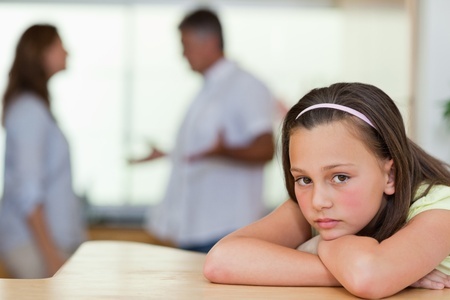Kids After Divorce: How to help your kids deal with divorce
By Daniel H Moss, Attorney
 Tragically, almost half of the children in the United States will live in a single parent home for more than five years because of divorce.
Tragically, almost half of the children in the United States will live in a single parent home for more than five years because of divorce.
It’s no secret that kids need special care after a divorce, but parents who are dealing with so many life-altering changes themselves often aren’t prepared for how best to create the smoothest possible transition for their children.
It’s important to remember that the actions of divorcing parents profoundly impact their children, so knowing how best to react to a child’s behavior is critical.
In this article, I provide some suggestions for ways you can help your kids deal with divorce.
- Communication is key. Talk to your children about the divorce and their feelings. Children always know something is wrong before a divorce happens. Hiding it from them only creates unrealistic fears and stresses. Children often think the divorce is a result of their behavior, so make sure your children know the divorce is not their fault.
- Don’t put the child in the middle of the parents’ disagreements. By attacking your ex-spouse, you are placing the child in a difficult emotional dilemma. Your children should not have to take sides or be in the middle of your disputes.
- Try to maintain a consistent approach to discipline. When the child is spoiled by one parent, he may feel animosity toward the other. Parents should discuss a uniform set of rules and stick to them.
- Don’t argue in front of your children. Children get very upset when witnessing their parents fighting. If you do need to settle an argument, wait until the child is not present or is asleep.
- Don’t condemn your ex-spouse in front of the child. Remember that your child still feels love for your ex. By devaluing the other parent, you may inadvertently be devaluing the child, too.
- Explain to your child that divorce is final. Many times children will maintain an unrealistic hope that someday their parents might still get back together. By explaining to the child that the divorce is final, you allow him to deal with his feelings and move on with life.
- Do not be afraid to seek professional help. If your child is having difficulty adjusting to the divorce and you are unable to help, contact your doctor or psychologist. The faster you deal with a problem the more likely it may be overcome.
Contact: 248.855.5656 | [email protected]



